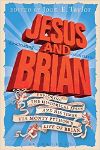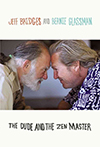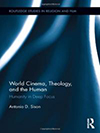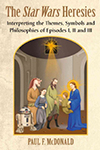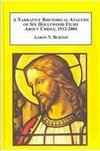- Author(s): Graham Holderness
- When: 2008-11
- Where: Reading Spiritualities: Constructing and Representing the Sacred
The genre of film is radically different from the Gospel genre. The latter, as well we know, is the medium of the written word, clear, elementary, the word of faith. born and transmitted through the oral tradition, a holy word which for Christians is inspired and guaranteed by God ... En mare, la parole filmique nest janiais &inspiration divine. quelle son approuvie er louangee par les autorites ecclesiastiques on non. [Furthermore the filmic word is never divinely inspired or guaranteed, regardless of how approved or praised it might be by ecclesiastical authorities] The distinction offered here by Lloyd Baugh encapsulates the confrontation of disciplines that occurs when academic theology and film studies attempt to converge. Here, a Jesuit academic invokes what seems to me a simplistic understanding of the Gospels, traditional in religious studies, but highly controversial anywhere else; and a reductive definition of film, derived uncritically from the secular discipline of film criticism and theory. It is possible, in my view, to accept the Gospels as the word of faith, but also to regard them, even in the process of their original composition, as sophisticated literary texts, and as writings that certainly cannot be accessed independently of the vast project of literary interpretation, adaptation and appropriation that has been going on in and around them for over two millennia. Conversely the medium of film is no more immune than any other art form to divine inspiration. Notwithstanding its technological dimensions and context of popular entertainment, film also has 'the potential' as David Jasper says of literature `to reconfigure theological discourse'.

